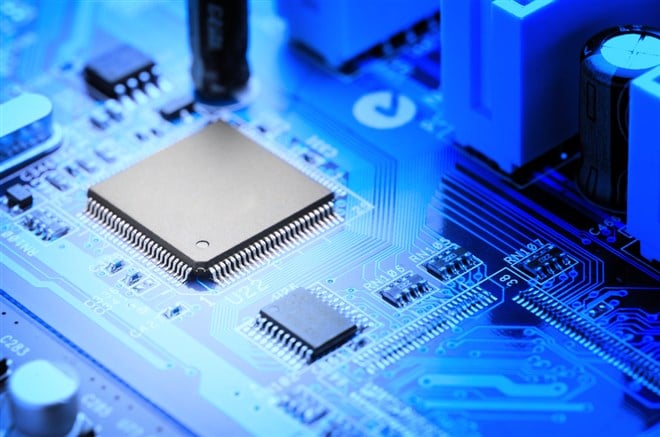
NVIDIA Corp (NASDAQ: NVDA) has no shortage of vision, as its founder and CEO Jensen Huang has demonstrated a Buffett-like ability to predict the future of the industry he is passionate about and inherently knowledgeable within. Widely recognized as a pioneer in graphics processing and has received multiple awards for his work contributing to advancements in the industry.
Making it out of the bottom ranks is one thing; however, staying within the top-rated and most innovative firms in such a quick-paced industry is a whole different pace to dance to; lucky for NVIDIA, Jensen has plenty left in the tank.
What roadblocks?
When investors look at the short-term financial performance of any firm related to the chip industry, it is easy to think this has been a fluke of a year given the tremendous demand experienced and the favorable tight supplies allowing for lucrative pricing power.
However, NVIDIA has not only experienced a stellar 52.7% and 61.4% growth in revenue for the respective 2021 and 2022 fiscal years, but a formidable 19% Compounded Average Growth Rate (CAGR) over 10 years. No other firm comes close to even a fraction of this ferocious market share grabbing.
The only real competitor that could stand in the way of a so-called "blue ocean" is the time-tested and business cycle-hardened Intel Corp (NASDAQ: INTC), which has only achieved a 2% CAGR in revenue over the same period but holds a not to be reckoned with operating margin.
These industry-leading margins have allowed Intel to invest heavily into R&D and left a huge open field for its newly appointed CEO Pat Gelsinger, to undertake a turnaround plan that may present the first roadblock to NVIDIA's dash sprint.
Shake hands and play nice
NVIDIA's revenue has historically been derived from three main regions: the U.S., Taiwan and China. In the 2021-2023 timeline, the firm has seen revenues come less from China and more from the U.S. This trend that management expects to continue amidst geopolitical risks and the vast opportunities that the U.S. now presents by onshoring its technology patents and chip foundry capacity through Intel.
The two giants that clashed since the inception of NVIDIA may have to turn to each other to carry an entire nation into the next battle for technological advancements and regain a certain level of control over the supply chain for the very things that will run most of the gadgets humans cannot live without.
As NVIDIA becomes more reliant on North American revenues, it must surely be aware of the risks it carries by relying on Taiwan Semiconductor Manufacturing (NYSE: TSM) to fabricate its chips. Intel's name and future turnaround plan are betting on the very switch in control for manufacturing capacity and capabilities, having landed a deal with ASML (NASDAQ: ASML) to use the newest EUV (Extreme Ultraviolet) lithography for chipmaking, allowing it to compete with Taiwan and South Korea in Manufacturing as many high-quality chips for a similar or even lower rate.
If Intel achieves this dream of becoming America's choice for chip manufacturing for fabless companies like NVIDIA, the embedded competition may become cooperation. NVIDIA may have to switch manufacturers if it wishes to continue to serve its biggest customer, as the latest annual report financials indicate.
This power exchange does not necessarily come at a cost to NVIDIA, as they still hold a key piece to the newest Artificial Intelligence puzzle. They hold the most advanced GPUs in the market.
ChatGPT sponsoring NVIDIA's rise?
What does an online, open-source, new-to-most artificial intelligence chatbot that seems to know the answer to everything has to do with a graphics chip firm that focuses on gamers?
Two words, parallel calculations. While CPUs - the stuff that Intel and others are known for perfecting - can create and train machine learning algorithms and so-called neural networks, they are no match to NVIDIA's GPUs (Graphics Processing Units).
GPUs aren't necessarily useful for gaming and streaming; these little things are particularly well-suited for AI workloads due to their ability to feed and perform various data sources and calculations simultaneously.
Meanwhile, a CPU can only do so one at a time, thus severely hindering AI's ability to progress and develop itself. Management sure isn't shy to show investors just how crucial they are in developing up-and-coming hot issues of the day like ChatGPT.
The rise of ChatGPT amongst all verticals and audiences has pointed investors and analysts down to one common route: NVIDIA with its GPUs, which allowed the former to become what it is today in the first place. Thus as markets experience further breakthroughs in AI and other digitalization of asset technologies, NVIDIA will likely be right at the center to take credit - and most importantly, market share that will keep on boosting its long-term CAGR figures - for the advancements and growth of computing power.